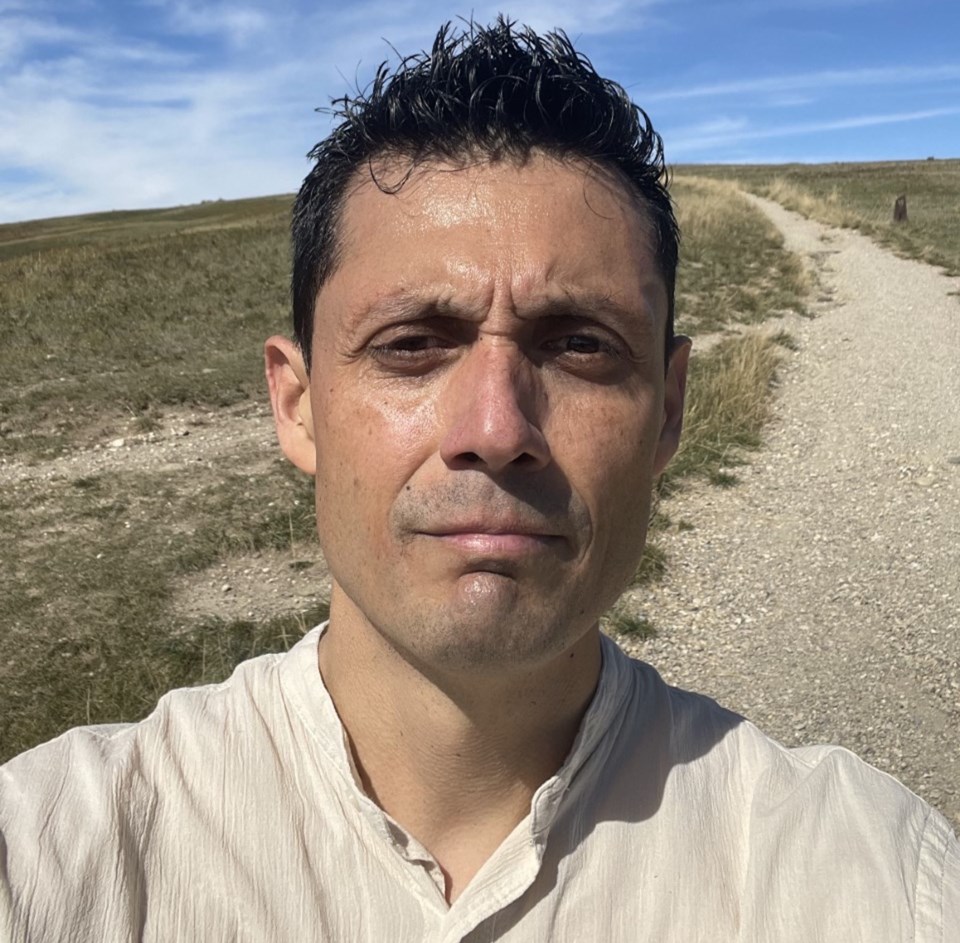Airdronians have joined Canadians across the country this September by taking part in the annual Multiple Myeloma March (MMM).
Held every fall, MMM intends to raise awareness of myeloma (also called multiple myeloma), which is a blood cancer that affects plasma cells and bone marrow. According to Michelle Oana, the director of development and community relations for Myeloma Canada, the disease is the second-most common form of blood cancer, after non-Hodgkins lymphoma.
Canadian Cancer Society statistics indicate nine Canadians are diagnosed with myeloma each day – more than 3,000 a year.
However, Oana noted the disease has many misconceptions.
“Most people who hear the word myeloma have never heard of it before,” she said. “It often gets confused with melanoma, for one, but it’s a completely different cancer.”
To bring awareness to the disease and raise funds to support research, Oana said Myeloma Canada facilitates and promotes a number of five-kilometre marches across the country every September.
“It most definitely is our biggest awareness event across the country,” she said, adding there are 32 walks happening in all 10 Canadian provinces this fall.
This year, similar to in 2020, the COVID-19 pandemic meant the marches were held virtually or in small gatherings, rather than in large city-spanning groups.
In Airdrie, the annual MMM is referred to as the Greg Roberts Memorial Myeloma Walk/Run, in memory of resident Greg Roberts, who passed away from the disease in 2014. This year, the sixth annual iteration of the event was observed on Sept. 4.
Although the Greg Roberts Memorial Myeloma Walk/Run has passed, Oana said Airdronians can still choose to participate virtually in other communities’ MMM walks happening later this month, or they can donate until the end of the year. Interested participants can register online either individually or in small teams.
Though treatable, myeloma still does not have a known cure, according to Oana, which is why it’s important to continue raising awareness and funds.
“Myeloma is still not curable at this moment, so it’s important we continue to raise funds, even through these times, so the research that is advancing at a really rapid rate doesn’t get stunted, and we continue accelerating that so we can get to a cure as soon as possible,” she said.
One physician who is actively involved with that research is Dr. Victor Jimenez Zepeda, a hematologist at the Tom Baker Cancer Centre in Calgary.
Jimenez Zepeda said the reason myeloma is difficult to treat is because the cancer cells learn to adapt to whatever treatment option is being used, which means patients experience waves of remissions and relapses.
“When you give one treatment, that treatment will be good enough to control the cells that are growing, but at some point, the other cells will start growing and that’s when the treatment doesn’t work anymore and you have to switch the treatment,” he explained.
Jimenez Zepeda said he and his team have have made a lot of progress in terms of treatments for myeloma by using immunotherapy, which involves treating a patient’s immune system to develop a good immuno-response so the cancer cells don’t have a good environment to survive, and the cells die.
“We have even gone further by actually generating some treatments that can affect the cancer cells – so it kills the cancer cells – but also it attracts the immune system to prevent the cells from coming back,” he said. “We have different drugs and strategies we have used in the past few years, and the way we actually get access as soon as possible to these new approaches is by getting patients into clinical trials.”
The doctor added the most common demographic impacted by myeloma is the 65-to-70-year-old age group. He added research progress in terms of treatment has advanced to the point where many myeloma patients in this age range can live long enough to ultimately die of causes other than their myeloma diagnosis.
He claimed Canada is one of the best countries for expediting the clinical trial process.
“What we do to try to expedite the research on those novel drugs is to put patients on those treatments as soon as we know there is a drug that might be potentially promising, or there is a new approach that can potentially be promising,” he said. “That’s the way we can actually try to maximise the benefit of any of these treatments and hopefully start curing the disease.
“Hopefully in five years we’ll have new drugs we don’t have today, but also give the best quality of life for whatever time [patients] have left.”



